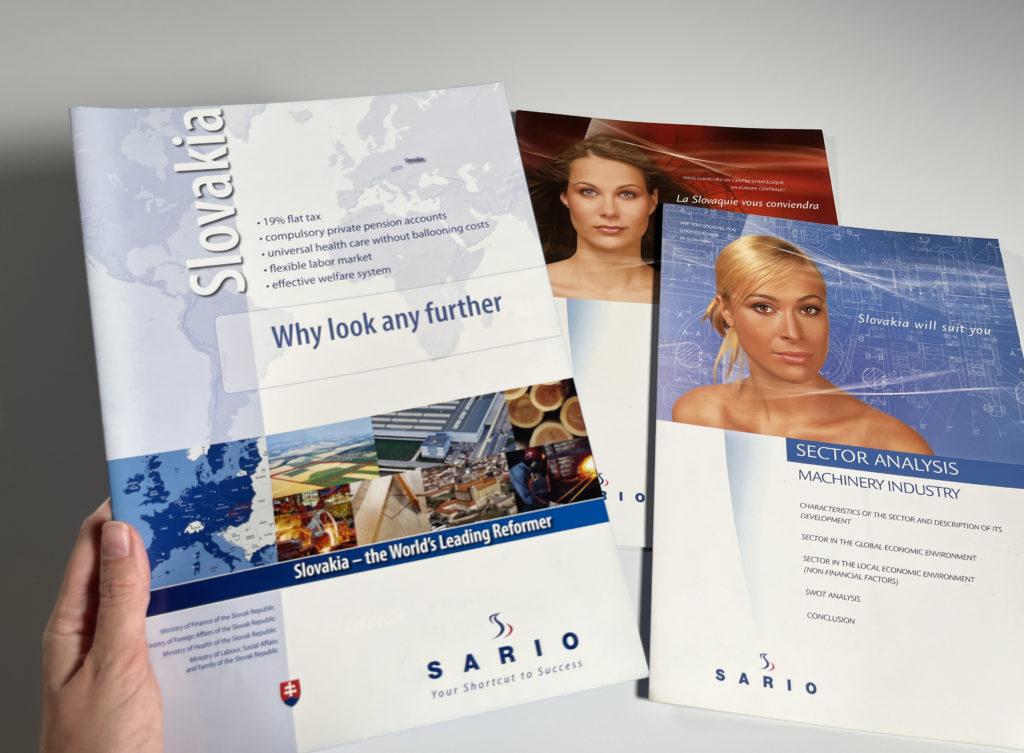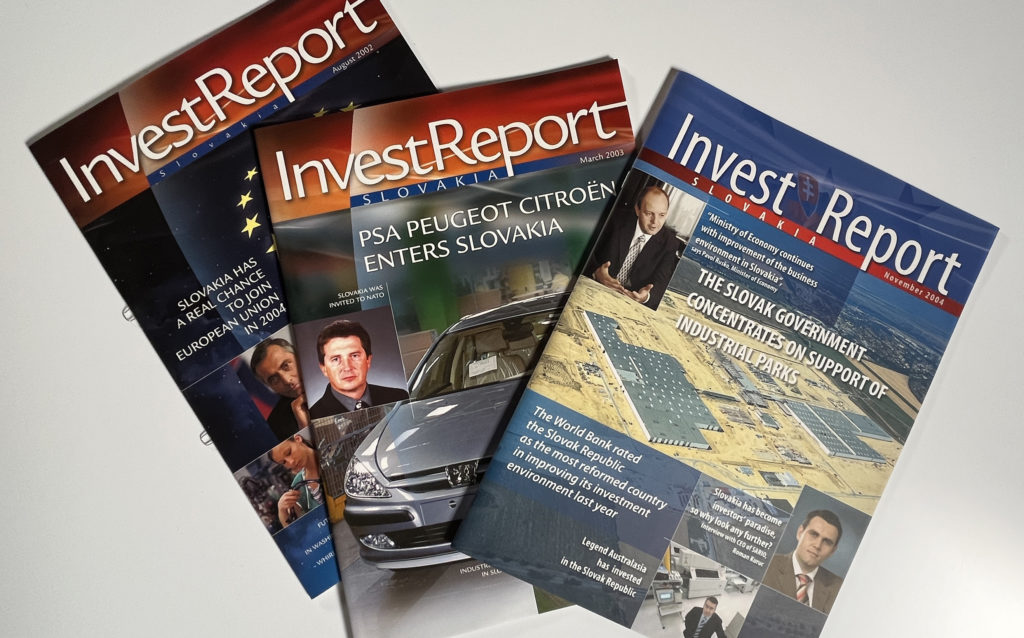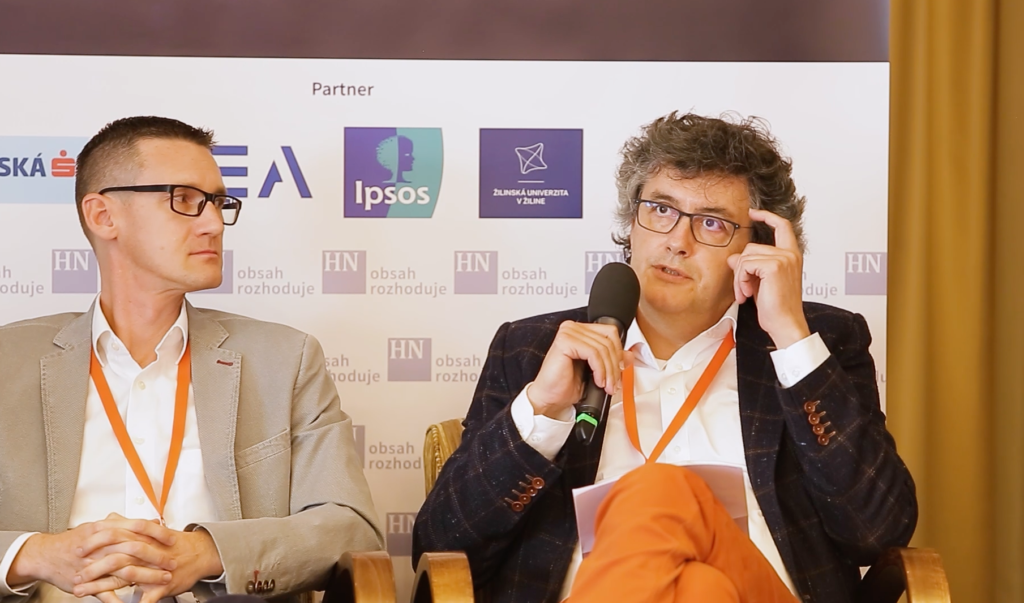branding-en
Marketing the country – how do we do it?
In June, a significant conference called “Slovakia as a brand” took place, which was attended by a world expert on the branding of countries, Simon Anholt. As we have been dedicating ourselves to the brands of our clients for 30 years, we didn’t miss the discussion about the most important brand either – the brand of Slovakia, the country which we live and operate in.
There is nothing wrong with advertising the country when it comes to presenting specific products such as flat tax, export, tourism. The problem, however, is that too many people interpret this process as the branding itself. At the end of the nineties, and the turn of the millennium, thanks to the overall good situation, our studio had a fairly easy task. That can't be said about today. Not only in our studio but also other creators are forced to look for unique solutions based on benefits that often do not even exist.
Back in those times, the state, as a sum of officials, along with the (then) Prime Minister, and the Minister of Finance worked very consistently. Unfortunately we no longer see this today. The Prime Minister built the image of Slovakia in the OECD, Washington and at various summits and meetings throughout the EU, while the Minister of Finance, sharing the same goal and vision, prepared the legislative conditions for the entry of capital. The most resonant of those conditions was the flat tax of 19%, which significantly simplified investors' entry into our market. For us creatives, it was enough to clearly communicate the benefits that the government created and deliver the message to the relevant markets. Since all relevant components of the communication mix were mutually consistent, the result was an extremely effective campaign from our studio, for which SARIO received an award in London and we were also shortlisted for the Invest Report project, which was being published abroad and was presenting Slovakia as a country of investment opportunities.

Really interesting was, that many companies from the private sector became partners of the project. This concentrated effort has borne fruit: We have obtained the largest investment in the history of the Slovak Republic. In 2003, we managed to win the Peugeot PSA Citroen for Slovakia in a challenging international competition. We joined the EU in 2004.
At that time, Slovakia enjoyed a favourable reputation in the neighbouring countries and was called the Tatra Tiger.

What creative challenges lie in the task of presenting our country today?
There is nothing wrong with the work of the agency that came up with the slogan “Good Idea Slovakia”, I even dare say it’s excellent.
The problem arises when you actually get that good idea and come to Popradské pleso (mountain lake in High Tatras) with your friends visiting from Germany. You order sheep cheese dumplings, but you get them with cottage cheese instead of bryndza. I speak from my own experience.
(note: bryndza (local sheep cheese) / bryndzove halušky = the national meal of Slovakia, the number one must-try for every visitor keen to try traditional Slovak cuisine)
But let's get back to the country. Today, our political scene offers us nothing. What is our strategy and vision? What is the positioning of our country in the world, what can we offer the world?
A country’s brand is not created by marketing, but by creating values which the marketers can then begin to communicate and sell to respondents.
What’s the current image of Slovakia internationally?
Practically nonexistent. However, despite that, it has a surprisingly optimistic potential. Respondents, who know Slovakia, view our country more positively and are pleasantly surprised. This status can be considered an advantage and a huge amount of potential for bulding a new, strong image of our country. On the other hand, it is also a threat – if no one knows about you, no one cares about you either.
With our clients, we often run against the problem of it being very hard and expensive for them to enter the international market, which is caused exactly by Slovakia nonexistent reputation.
It is really hard to sell a country where people curse, entrepreneurs do not trust their government and the young generation does not see their future in it and move outside the country.
Step 1: we don’t accept the status quo
Let’s take a plain look at our situation. Czechoslovakia has divided. Without a referendum and, I dare say, against the will of the majority of the people from both nations. There are regular calls for the repeal of the Beneš Decrees. The Ria Novosti news agency has released a report that is spreading on the internet, stating that Slovakia does not have the right to exist independently and should be divided between Poland, Hungary and the Czech Republic.
Now it’s time to ask a question – and this question is absolutely crucial.
Who in the world would miss Slovakia, except Slovaks?
And if no one missed the country, then why? What has Slovakia offered the world during its historically short existence? How does “Made in Slovakia” sound around the world? If we cannot find the answer to this question, let’s ask ourselves another one: What could Slovakia offer the world today?
The answer to this question is not easy either. But there might be something brewing.
Let's look at Slovakia like we’re looking inside a box. We will see about 5 million people, which is barely the number of people living in the suburbs of London. We see two nuclear power plants that can ensure energy self-sufficiency, but at the same time we are 85% dependent on natural gas and oil, which is the Achilles' heel of our economy.
We also see a relatively high number of university-educated citizens.
We have an engineering industry that is almost entirely dependent on the supply of raw fossil materials. We have a top private IT sector that has been collecting big data for decades. We have large reserves of groundwater and untapped potential of geothermal energy use. Our population is exposed to frustration and existential fear. And finally, we don't have much time.
All these conditions that landed us in this difficult situation also create a really high motivation for us to solve the problem. With some exaggeration, we can ask the question - To be or not to be? It is not easy, but neither is it impossible. Solving this problem might become Slovakia's great gift to the world.
Thanks to the small size of Slovakia, due to the weak momentum and fragility of the industry, due to the intellectual potential and due to great social pressures, we are able to unite as we did twenty-five years ago.
Imagine if the government would start working systematically and actively to support technical education, that we would be able to connect education to the scientific community, the industry and the IT sector. Imagine if our politicians would stop exhausting the nation with their petty disputes and send a signal abroad that we are working on solving our problems and are capable of taking a page out of our neighbors’ books, excelling and closing the developmental margin left here by the Soviet union. We have the potential.
Step 2: The Man in the Mirror
The internet makes jokes, that we are a nation of ice hockey and football trainers, experts on viruses and, of course, that we are born war strategists… Jokes aside, every one of us should ask ourselves: What does it mean to be slovak? Perhaps we will find out that we can’t answer this simple question, or that we don’t like the answer and find it disappointing. The place we’re from, whether we like it or not, makes up a significant portion of our personal identity. Why can’t it work the other way around as well, then? A nation is made up of individuals, our identity, our behavior and actions affect the overall image of the country.
Let’s imagine, for a moment, the ideal state – what do we want it to mean, to be slovak? If we were known in the world as forward-thinking, smiling people, willing to help not only in crises, technically educated and hardworking, a nation that creates and improves, one, which values its nature and cares about the environment...
What’s stopping us? Only the sufficient demand of our own citizens for a specific change can start this process.
What is the vision for our country? This is not just a question for the government – it is a topic, which requires concentrated discussion of every component of the country, the private sector and, last but not least, the citizens themselves.

The marketing of the country is not a task for the government or an agency. It is a task for every last citizen of the Slovak Republic.
Like with any oher brand, the vision of the country isn’t just about what we have in the pantry. First and foremost, it’s about what we want to be and what we want to achieve – once we do that, only then can we work on what is missing.
Who am I to tell you all this?
I am a mechanical engineer and a designer. I believe in science and technology. My hobby is history, especially the period after World War II, from which I draw many lessons.
I have been running a company for 30 years, which has enabled me to analyse business models and products of various companies from all over the country, from shoe manufacturers to ministries.
I help clients with communication from various industries, power engineering, sports, real estate development, the financial sector, the services sector and many others...
I consider myself a citizen of the World, a European, but above all I am a Slovak who cares about his country.